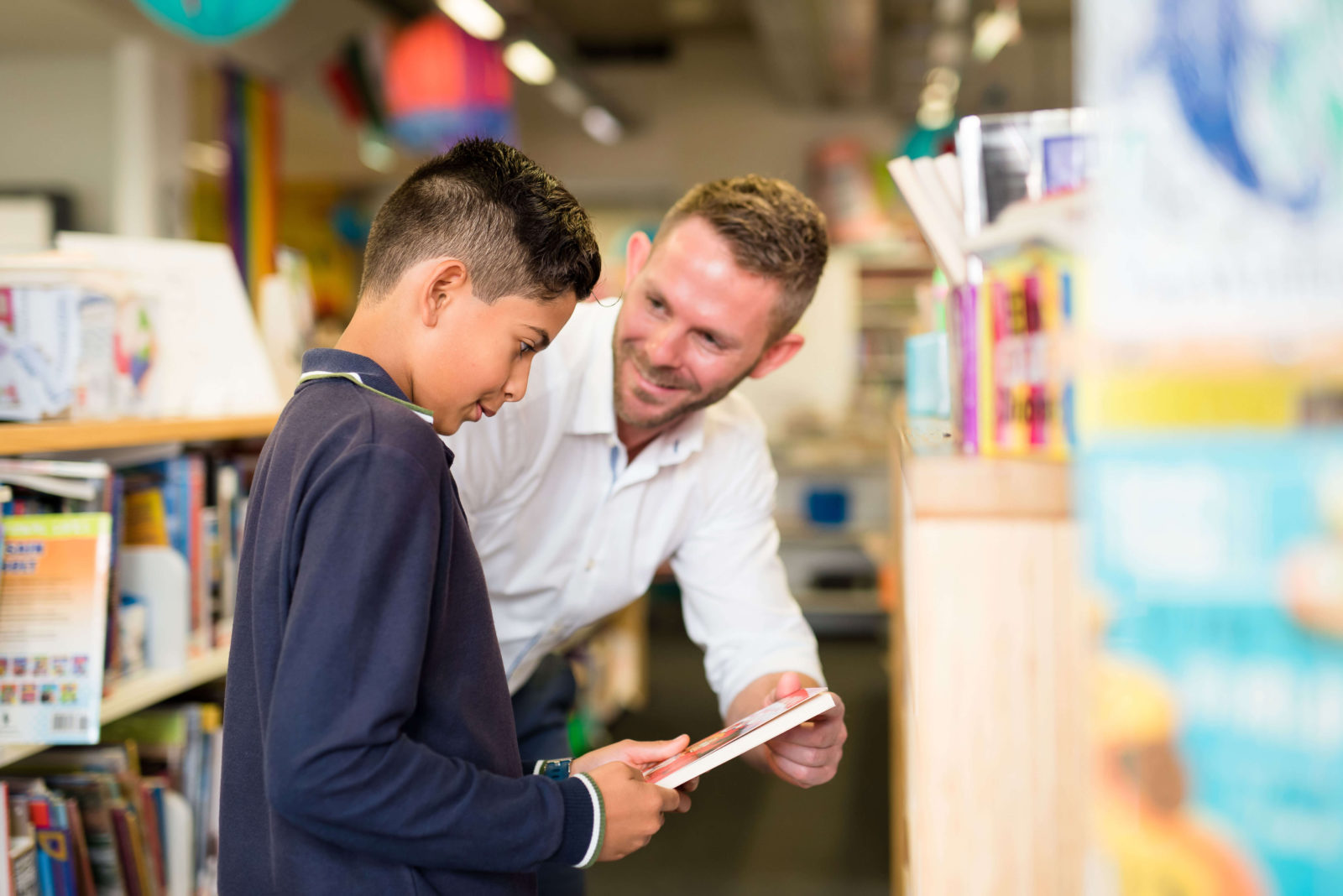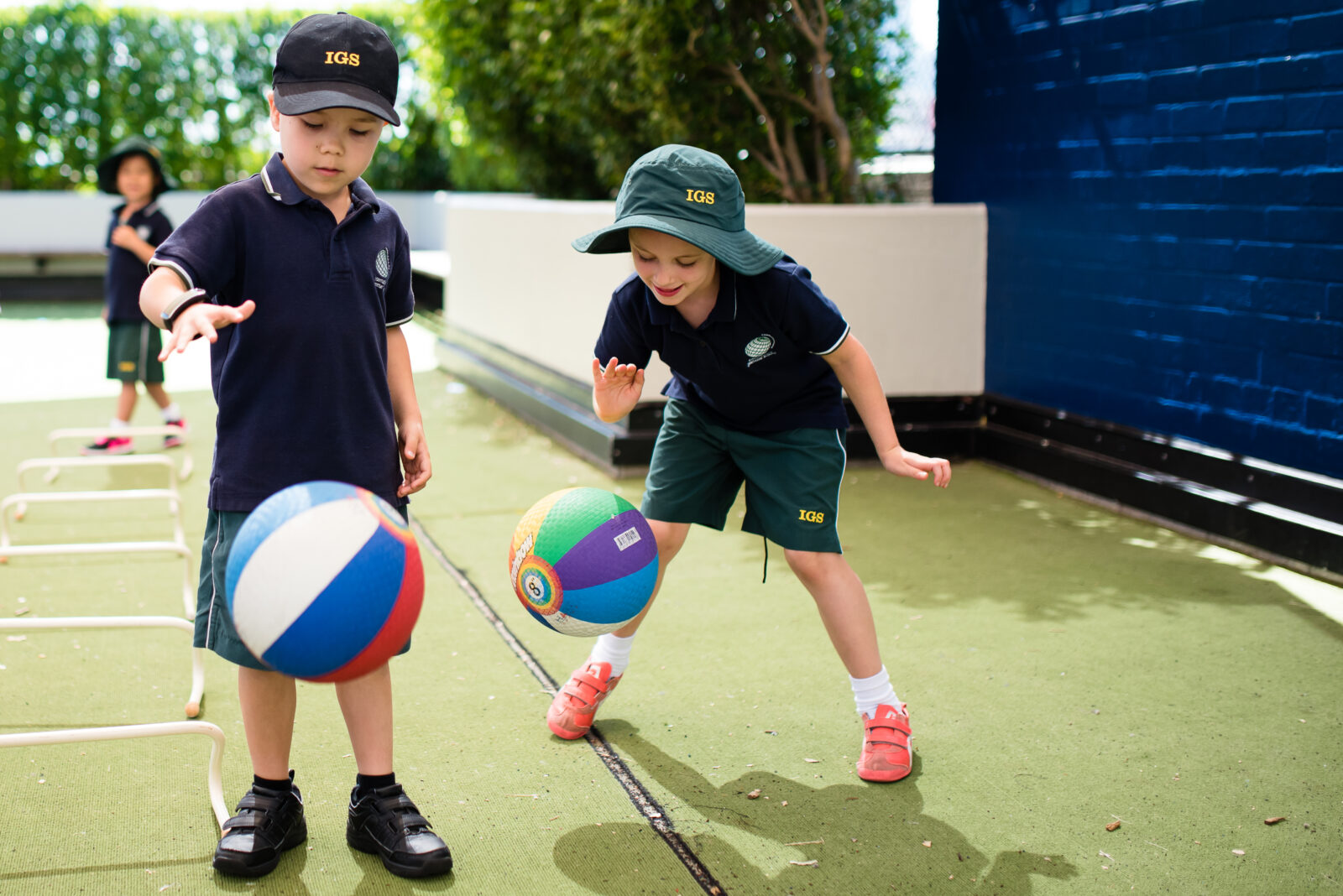
The Primary School program at IGS provides rich and challenging learning opportunities in a supportive and nurturing environment.
Student Learning in the Primary Years
Our primary program provides opportunity, challenge and support to learners from Kindergarten to Year 6. Meeting individual learning needs has a positive effect on self-esteem and development. Ours is a learning community in the broadest sense, supported by educators, parents and caregivers.
Our vibrant range of learning activities provides rigour and promotes acceptance of difference.
Students develop an understanding of themselves and their worlds through various forms of expression including Languages, Visual Arts, and Drama.
Kindergarten students spend 40 minutes a day immersed in their second language, while those in Years 1 to 6 spend 80 minutes a day immersed in their second language.
Key Learning Areas
In addition to Language and Music, students experience the following Key Learning Areas (KLAs):
- English
- Mathematics
- Human Society and Its Environment (HSIE)
- Science and Technology
- Creative Arts
- Personal Development, Health and Physical Education (PDHPE)
Learning opportunities occur both in the classroom and externally through our extensive Primary Clubs.
Flexible, integrated, inquiry-based research tasks engage students in subject areas which excite their imaginations and deepen their expertise in chosen areas.
At IGS, the Physical Education program emphasises participation for all, with involvement in competition for upper primary students.
Our holistic approach aims to cater for the ‘total child’ – academically, socially and physically. While Primary School classes are not streamed at IGS, we offer a range of enrichment, extension and acceleration within teaching programs.
Student achievement
Impressive results in competitions and external testing
Students at IGS perform at levels well above average in national tests and in a wide variety of local, national and international competitions.
Assessment and Reporting
At IGS, assessment and reporting are seen as essential components in good teaching and learning. Teachers use a range of strategies to assess learning. Students may be involved in the evaluative process, including self-assessment when appropriate. Teachers provide information to parents about assessment outcomes in a clear and comprehensive manner.
Parents of children in Kindergarten to Year 6 are able to meet formally with the Home Class teacher of their child in Term 1 to discuss early progress. This is followed up with parent and teacher interviews in Term 2 with Languages teachers. Of course, parents may schedule additional meetings with teachers as needed.
Formal written reports following Commonwealth Guidelines are issued at the end of each semester for children in the Primary School These reports describe student achievement in each course or area of study, using grades A to E. Effort is reported on each semester as well.
Kindergarten
A great start to school
Find out more about our Kindy program, enriched by languages and music.
Learn MoreLanguages
Primary School Languages Program
In childhood, language learning comes naturally. Gestures, accents and words are absorbed through dance, song and play.
Learn moreMusic
Music in the Primary School
Music plays a significant and integral part in the Primary School education offered at IGS. Our aim is to provide students with a high quality music education in an energetic and creative environment.
Learn MoreIndividual Programs
A wide range of educational options
IGS recognises the need to provide a wide range of educational options to cater for the individual needs of students with high abilities. The main options for this include enrichment, extension and acceleration within the teaching programs.
Learn MoreAcademic Achievements
National Assessment Program – Literacy and Numeracy (NAPLAN)
Testing takes place annually in Year 3 and Year 5, and IGS students consistently perform at above average levels.
Learn More






